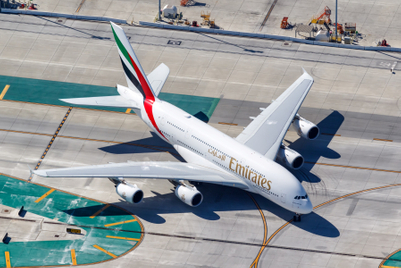
Emirates, the airline subsidiary of the Emirates Group, has put a freeze on all communication across Southeast Asia. It is also understood another major brand has halted audio campaigns, scheduled to roll out on music streaming platform Spotify due to the current crisis.
A situation like the MH370 disappearance is extremely sensitive, and the consumer mindset is focused on the news surrounding the incident rather than advertising. “We have advised our airline clients to pull out all advertising,” said Manu Sanghi, director of International Business, Havas Media APAC. Havas Media manages global media duties for Emirates.
Sanghi’s rationale is simple. There is a risk of an ad appearing next to the crash or disaster news, which can have a negative impact on the brand image. “Advertising in such a scenario comes across to consumers as callous and insensitive to victims and their families,” he said.
Public relations company Zeno Group has counselled clients to be extra sensitive to the sentiment of Malaysians, and as such delay their campaign plans. "Personally I think it's a great move for brands to demonstrate sensitivity towards the larger national context," said David Lian, GM, Zeno Group Malaysia.
"It doesn’t speak well of a brand heavily promoting or asking people to 'buy, buy, buy' on Facebook while the rest of the audience’s personal stream is filled with messages of comfort and concern over the MH370 incident," Lian said.
Another industry spokesperson, who did not wish to be named, said that brands in the travel and tourism space are more likely to pull campaigns than others.
Several Malaysia agencies that Campaign Asia-Pacific contacted declined to comment on the matter.
“In a time of crisis like this, we all need to be sensitive to the situation and respectful to the people and families affected,” said Andreas Vogiatzakis, CEO, Omnicom Media Group Malaysia. “It can happen anytime anywhere. We need to be supportive and avoid at any cost any opportunistic circumstantial gains.”
Sanghi and his team are focused on thinking “outside-in” and being sensitive to the needs of disaster victims and those that empathize with their situation.
Messages from brands that express their well-wishes and prayers are very well received, Lian noted. "It shows us how Malaysia, both corporate entities and individuals are pulling together to get through this period together."
Perhaps advertisers are taking a leaf out Coca-Cola’s book. In November, following Typhoon Haiyan in the Philippines, the cola giant suspended brand advertising in the country and instead donated its entire budget to relief efforts. “Any committed advertising space will be redirected to the relief and building efforts for the people in Visayas,” Coke’s statement read. The brand ended up donating more than US$2.5 million to rescue operations.
Several other brands also rushed in to offer help. US telecom companies offered free calls to the Philippines, and FMCG giants Unilever and Procter & Gamble worked closely with relief organisations, offering products, services and cash.



.jpg&h=334&w=500&q=100&v=20250320&c=1)

.jpg&h=334&w=500&q=100&v=20250320&c=1)
.jpg&h=334&w=500&q=100&v=20250320&c=1)
.jpeg&h=334&w=500&q=100&v=20250320&c=1)

.jpg&h=334&w=500&q=100&v=20250320&c=1)

.jpg&h=334&w=500&q=100&v=20250320&c=1)


.jpg&h=268&w=401&q=100&v=20250320&c=1)
.jpg&h=268&w=401&q=100&v=20250320&c=1)
.jpg&h=268&w=401&q=100&v=20250320&c=1)
.jpg&h=268&w=401&q=100&v=20250320&c=1)

.jpg&h=268&w=401&q=100&v=20250320&c=1)